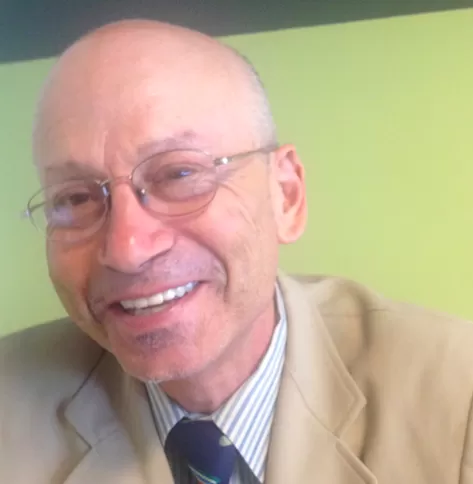Irvin Dawid discovered Planetizen when a classmate in an urban planning lab at San Jose State University shared it with him in 2003. When he left San Jose State that year, he took with him an interest in Planetizen, if not the master's degree in urban & regional planning.
As a long-time environmental activist, he formed the Sustainable Land Use committee for his local Sierra Club chapter and served six years on the Bay Area Air Quality Management District’s Advisory Council from 2002-2008. He maintains his interest in air quality by representing Sierra Club California on the Clean Air Dialogue, a working group of the Calif. Environmental Dialog representing business, regulatory and public health/environmental interests.
Major interests include transportation funding, e.g., gas taxes, vehicle miles traveled (VMT) fees, road tolls and energy subsidies that lead to unlevel playing fields for more sustainable choices.
He hails from Queens (Bayside) and Long Island (Great Neck); received an AAS in Fisheries & Wildlife Technology from SUNY Cobleskill and a B.S. from what is now Excelsior College.
After residing for three years on California’s North Coast, he’s lived on the San Francisco Peninsula since 1983, including 24 years in Palo Alto. Home is now near downtown Burlingame, a short bike-ride to the Caltrain station.
He’s been car-free since driving his 1972 Dodge Tradesman maxi-van, his means to exit Long Island in 1979, to the junkyard in 1988.
Major forms of transportation: A 1991 'citybike' and monthly Caltrain pass, zone 2-2. "It's no LIRR, but it may be the most bike friendly train in America."
Irvin can be reached at [email protected]
The Aging Driver: A NYT Debate
Prompted by Google's latest invention, the car that drives itself, the NYT sought four different perspectives on how to approach the onslaught of aging baby boomers behind the wheel: An M.I.T. scientist, Rand economist, Yale doctor, and AARP VP.
Federal Transportation Funds For Highway Removal?
The second round of Transportation Investment Generating Economic Recovery (TIGER) funds were announced Oct. 20. Awards amounting to $600 million will go to 75 projects, including three highway teardowns.
What Infrastructure Crisis?
Transportation policy expert, Ken Orski, takes a different perspective in his column, "Living in Denial". Rather placing the blame on the American public and lawmakers denying the infrastructure crisis, he applies it to the transportation community.
Motorists May Be Asked To Pay Ozone Penalty
San Joaquin Valley's bad air will cause their air district a $29 million fine for exceeding federal ozone limits - and they plan to ask motorists to pay the bill, if the board supports the new registration fee.
Hello Moynihan Station - Goodbye Penn
It's the busiest rail station in America - the first step of its transformation that returns some of its former grandeur began Oct. 18 at a groundbreaking that included DOT Secretary Ray LaHood. Penn Station will be renamed Moynihan Station.

























